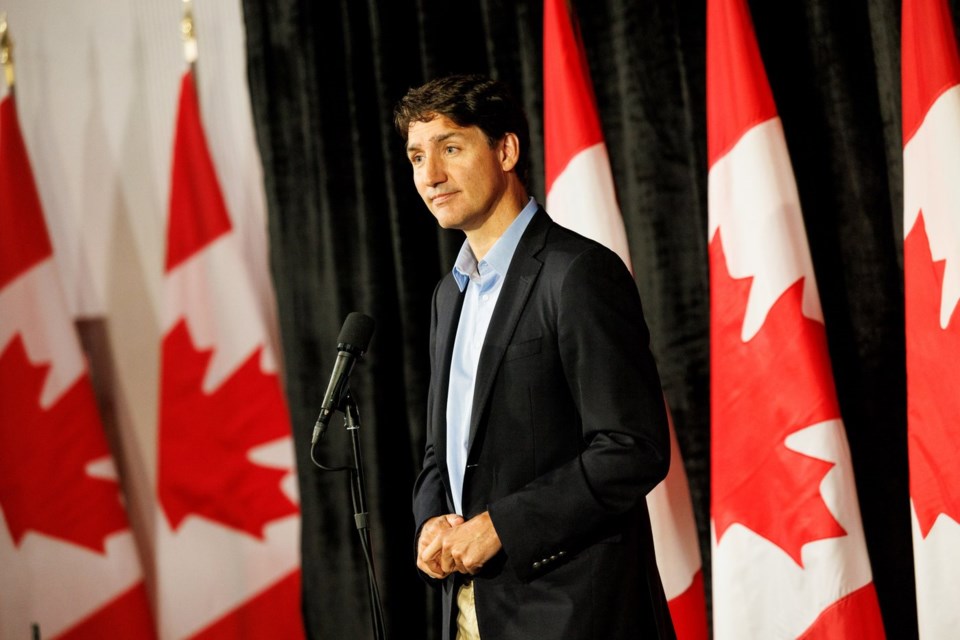HALIFAX 鈥� China slammed Canada's decision to impose a 100 per cent import tariff on Chinese electric vehicles Tuesday, accusing it of politicizing trade and vowing to retaliate.
Prime Minister Justin Trudeau announced the move at the federal cabinet retreat in Halifax on Monday, four months after U.S. President Joe Biden announced similar plans.
Europe is also planning tariffs, though at a lower rate.
Canadian automakers welcomed the plan, though some environmental activists panned it, fearing it will slow uptake of electric vehicles in Canada by keeping cheaper options out of the market.
According to a Chinese government transcript of a media briefing in Beijing Tuesday, a spokesman for China's foreign minister said the Canadian move "ignores facts, disrespects WTO rules, and runs counter to historical trends."
"This typical protectionist move disrupts China-Canada trade relations, harms the interests of Canadian companies and consumers, and does little good to Canada鈥檚 green transition process and global effort for climate response," Lin Jiang said.
"China deplores and opposes this."
Canada says it has evidence proving China unfairly subsidizes its EV industry and overproduces vehicles to flood the market with cheaper cars that pose unfair competition. Canada also argues that China's industry fails to follow adequate environmental and labour standards.
"We have put a price on paying our workers fairly," Canadian Trade Minister Mary Ng said Tuesday, responding to China's criticisms.
"We pay our workers and we have high environmental standards. Those are wired into the trade agreements that this government has negotiated time and time again. And fair trade means level the playing field for fair trade rules. Fair trade rules means fair trade for workers and environmental protection."
Canada has also invested massively in the EV industry, with $53 billion in production subsidies and capital investments promised by the federal, Ontario and Quebec governments in 13 new auto and battery plants.
Jiang dismissed the accusations from Canada, which are echoed by the U.S. and the European Union, that China is unfairly subsidizing its vehicle companies.
"The rapid development of China鈥檚 EV industry is the result of persistent tech innovation, well-established industrial and supply chains, and full market competition," he said. "This is what happens when our comparative advantages provide exactly what the market needs."
He said Canada must "respect facts" and "correct this wrong decision at once," and that China will take all measures necessary to safeguard the legitimate rights and interests of Chinese enterprises.
China also vowed retaliation against the U.S. and Europe when their tariffs were first announced in June. But it has yet to take any action related to the U.S. For Europe, it has announced reviews of certain products including dairy and pork.
China has in the past targeted Canadian canola and pork as retaliation for diplomatic disputes.
The U.S. EV tariff was set to take effect on Aug. 1 but has been delayed until at least September, while Canada's will kick in Oct. 1.
Additional tariffs of 25 per cent on steel and aluminum products will take effect Oct. 15, with the final list of which products will be affected expected on Oct. 1.
Canada is also launching consultations to consider adding tariffs to electric vehicle batteries, battery parts, critical minerals, solar cells and semiconductors.
The U.S. has already planned tariffs on those products, taking effect between 2024 and 2026.
Flavio Volpe, president of the Automotive Parts Manufacturers' Association, said he has been lobbying Canada and the U.S. for the tariffs for almost a year.
"We鈥檝e worked very hard to get Ottawa and Washington to understand the Chinese EV threat," he said.
China is the world's biggest EV manufacturer, accounting for nearly 60 per cent of total global production. The China Association of Automobile Manufacturers said six million EVs were produced in 2023. About 1.5 million were exported.
BYD, one of the biggest Chinese EV brands, sold three million electric vehicles last year. Tesla, once the world's largest electric carmaker, sold 1.8 million.
No Chinese brands are sold in Canada yet 鈥� only some Teslas manufactured at the company's Shanghai plant would be affected by the tariffs immediately. But BYD set up a corporate presence in Canada and is looking to enter the market as early as 2025.
It has quickly gained a foothold in Europe and Australia and is exploring a production site in Mexico.
While the average cost of an EV in Canada is about $70,000, BYD introduced one last year,called the Seagull which sells for about $13,000 Canadian.
This report by The Canadian Press was first published Aug. 27, 2024.
Mia Rabson, The Canadian Press




